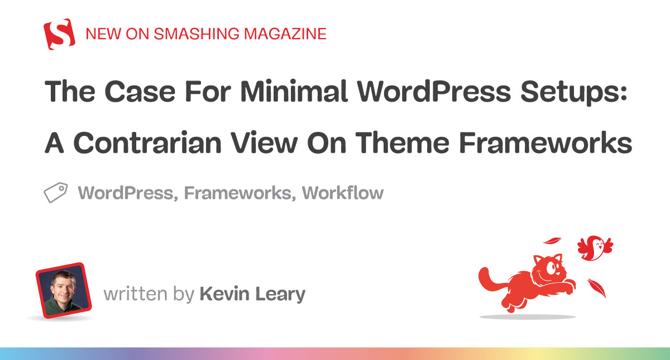Smashingmagazine
1M
449

Image Credit: Smashingmagazine
The Case For Minimal WordPress Setups: A Contrarian View On Theme Frameworks
- Theme frameworks like Sage and Genesis have become popular for custom WordPress development, but they can present challenges in long-term maintenance, scalability, and developer onboarding.
- Frameworks like Sage offer modern standards, streamlined workflows, and maintainable codebases, appealing to agencies for their efficiency and productivity benefits.
- However, the author, based on experience, highlights issues faced when inheriting projects built on these frameworks, revealing complexities that hinder future development and maintenance.
- Challenges include abstraction creating friction, inflexible patterns, hosting compatibility issues, and breaking changes during upgrades, which can lead to stagnation and dependency management problems.
- The article advocates for a minimal WordPress approach, emphasizing simplicity, no unnecessary abstractions, reduced tooling overhead, and compatibility with future updates.
- A real-world example of a minimal theme is presented, showcasing features like Sass for CSS preprocessing, Composer package management, Twig templating, and a view-controller pattern for easier collaboration and problem-solving.
- The theme's build process prioritizes speed and efficiency, using native ES modules for JavaScript and focusing on simplicity without excessive compilation steps.
- The author advocates for a contrarian approach that favors minimalism over complex frameworks, emphasizing the importance of maintainable, approachable solutions for WordPress projects.
- By choosing simplicity and a minimal approach, developers can create codebases that are easier to maintain, onboard new developers, and remain resilient to future changes.
- In conclusion, the article encourages a shift towards minimal WordPress setups, highlighting the benefits of simplicity, maintainability, and long-term sustainability in web development.
Read Full Article
27 Likes
For uninterrupted reading, download the app